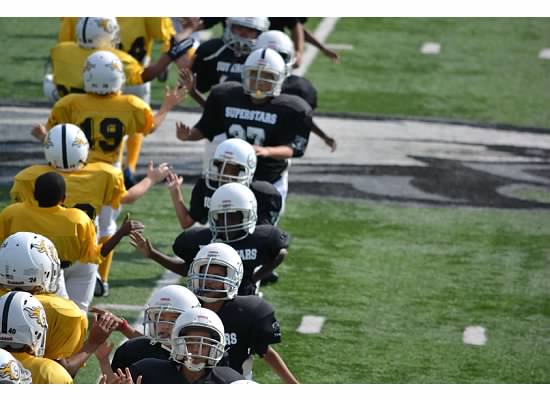Foster Family Survival Kit
Sometimes, being a foster parent makes me feel like I’m in a different world. There’s a special foster care language, certain foster care rules, different forms, and more. It’s hard to navigate through the strange world of foster care, and there are times when I’ve felt that no one I know can relate to my stories or answer my questions. So, here’s a foster family survival kit.
In our first year of living through and learning about life as a foster family, we have found five things that are particularly helpful in settling into the foster care world–so helpful in fact, that I feel they are essentials to being the best foster parent you can be while maintaining your sanity.
1. Additional Training

Where we live, foster parents are required to complete 27 hours of training (among other things) before receiving a license. To keep a foster license current, foster parents must complete 16 additional hours of training every four years. For specialized foster homes, like ours, the required amount of training is 16 hours per year. Because we are required to take extra training, we have become familiar with the different pieces of training offered by our agency and the state.
We have found the training provided by private foster care agencies and the Department of Children and Families to be extremely helpful. Not only is the training specifically geared toward foster parents, but most states offer training classes in a variety of subjects covering pertinent issues.
We’ve taken several classes and learned how to better advocate for our children in their schools, how to talk to them about their birth parents, ways to support them after adoption, how trauma can affect children’s emotions and behavior, and how to deal with that more effectively. The information we’ve learned has greatly informed us and improved how we parent our children.
In our state, these classes are taught by an experienced social worker along with a seasoned foster parent. The information was delivered in a personal way through people who have been part of this world for a long time, which made it even more helpful. A bonus of these classes is that you meet other foster parents in your area.
2. Support Groups
There’s something so rejuvenating about talking with someone who can relate to what you’re going through. When you’re going through something that not a lot of people have experienced, those opportunities may not present themselves often, which is why it becomes necessary to seek them out.
We joined an adoption and foster parent support group about six months after we become foster parents. We were connected to the group by our boys’ counselor. Up to that point, I felt pretty alone in my experiences. I had friends who wanted to hear what we were going through with our boys, but no one could actually relate and vent with me. Our support group has been wonderful. I always feel like a weight has been lifted when I leave there. I have found friends who can relate to what I’m feeling and I can relate to their experiences too.
Not only have we found friends who we can relate to, but our kids have, also. In their everyday lives, they are the only foster kids they know and the only brown kids with white parents. At our support group, they are normal. All the kids are either adopted or in foster care, and there are many transracial families. They love spending time with the families in our group as much as we do.
3. Respite Care
We don’t have family near us to take our kids for the weekend, and even if we did, there are some really unique issues that our boys deal with that are not always easy to navigate. It’s hard to find sitters or leave the kids with someone else because it always feels like a toss-up of whether or not they will do well. This is where respite care is really helpful.
Respite care is where another trained foster family provides short-term care for foster children. All foster parents are entitled to have some respite care hours so they can get a break. Most of the time, respite care can be arranged by your caseworker, and you can specify certain things about the type of home you would like if you have concerns.
It took us a year and some serious behavioral issues to finally take advantage of respite care, but I’m glad we did. Knowing that the couple caring for our boys had been trained on the unique issues of children in foster care made me feel a lot better about leaving them with someone else for a few days.
4. State Services
Most children in foster care receive some services as a part of their permanency plan, such as counseling. But there are a lot of services that foster children can receive, depending on their needs: nutritional planning, counseling, early intervention, behavioral services, and more. Services abound for wards of the state; foster parents just have to push for them.
Generally, children in foster care haven’t had any active advocates in their life to get them into programs they need or would benefit from, and this is where foster parents need to be proactive. Our older boys have benefited greatly from seeing a specialized counselor, and our youngest is receiving early intervention services that are helping him with his speech and sensory issues.
Foster children automatically qualify for early head start programs, and they get moved to the top of waiting lists for public preschools, public after-school programs, or basically any other public educational service. Take advantage of this to get children what they need to bridge the gap in their education that has resulted from their unstable early life.
5. Community Programs

It seems like sometimes there is a concern about allowing foster kids to put down roots in a community when it’s uncertain how long they will stay in one home. While there may be some sadness when a child has to move away from a place they’ve learned to love, the benefits of attaching far outweigh the disadvantages.
Sign kids up for local sports teams, art and music classes through the park district, or summer field trips.
Our older boys have some social delays, which is common for children who have spent a long time in foster care. Joining teams is a great way for kids to be around other kids their age and build a friendship around their common experience. It’s also a great way for the kids to feel ownership over something in their life, as well as a great self-esteem builder for the kids.
It is necessary to find solid support for yourself and your family as you become foster parents and try to support children who need a lot of it. These five essentials are often in easy reach of foster families. You just need to reach out and grab them.
Do you feel there is a hole in your heart that can only be filled by a child? We’ve helped complete 32,000+ adoptions. We would love to help you through your adoption journey. Visit Adoption.org or call 1-800-ADOPT-98.







